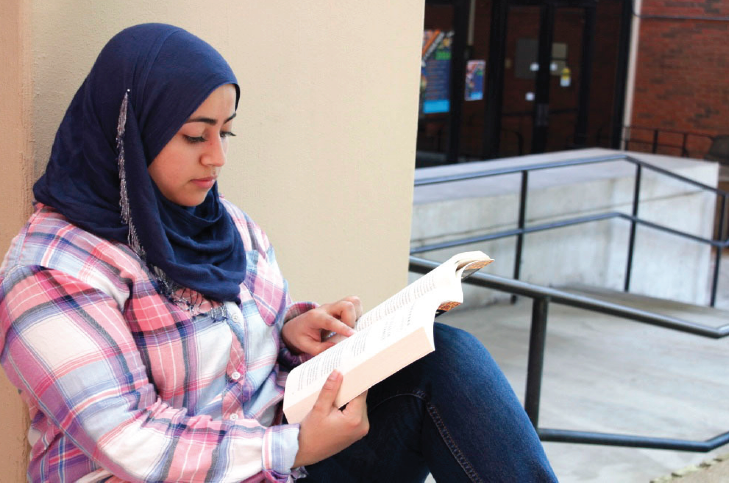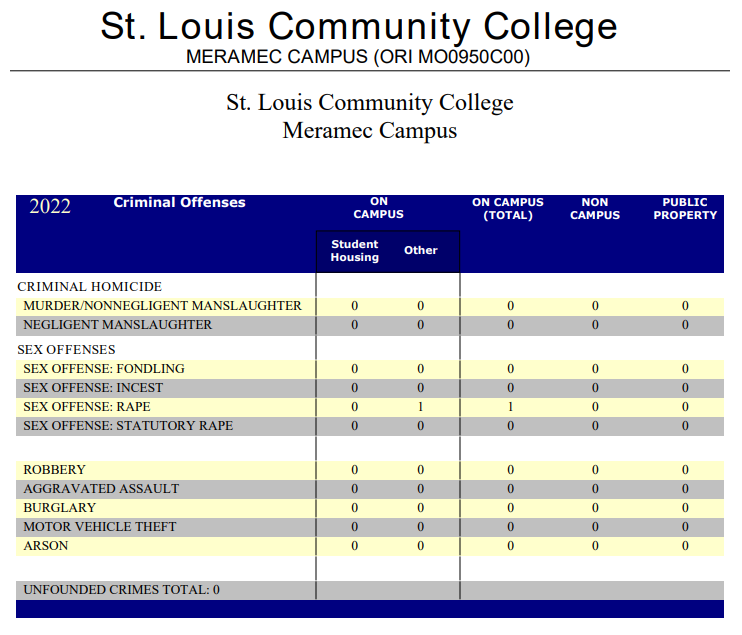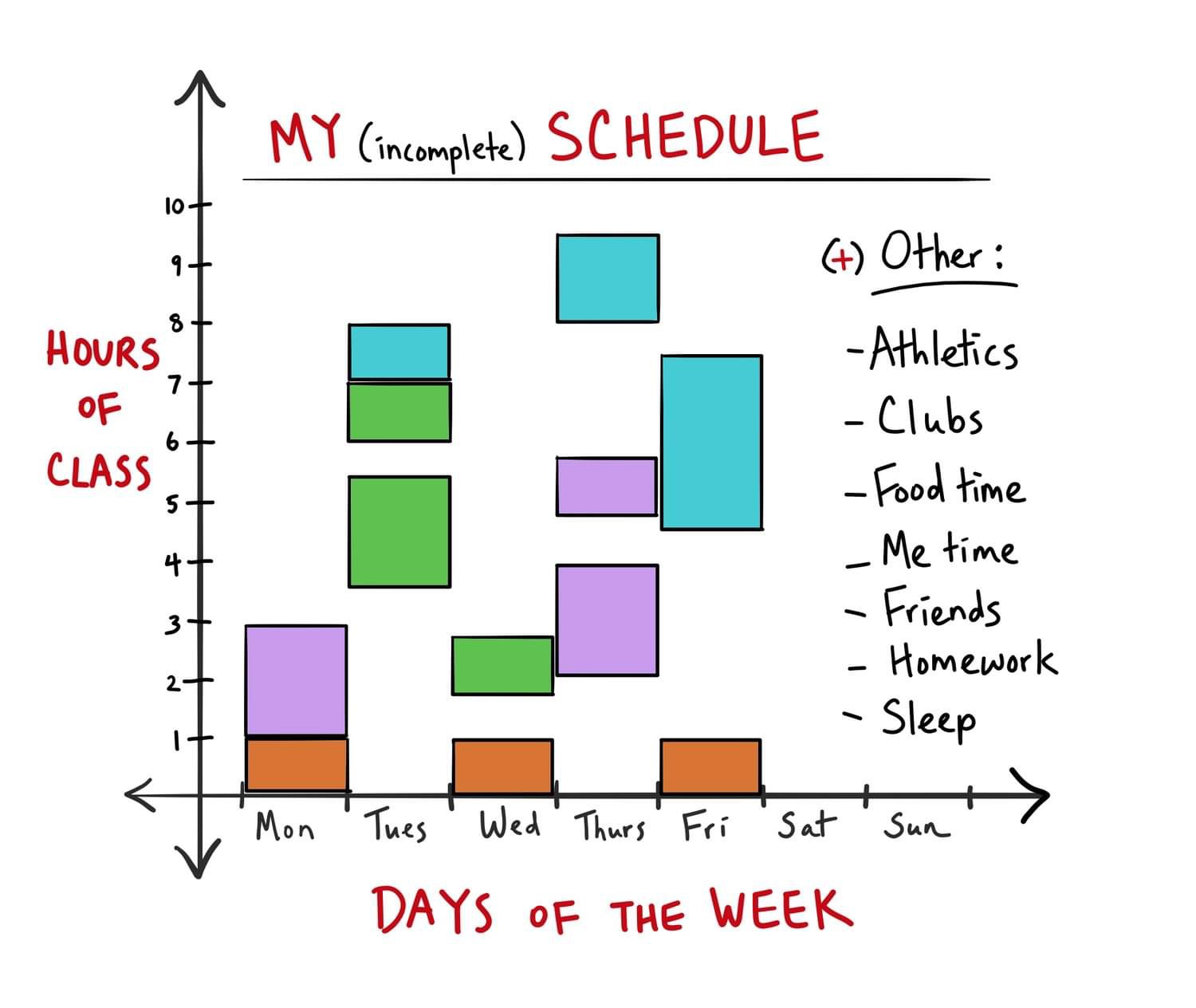Student Noura Abdelghafoor and History Professor Robert Lee shed light on misconceptions
By: Katie Hayes
Editor-in-Chief
 “‘Is it our fault?’ That’s the most common question that I get,” History Professor Robert Lee said. “It would be either ‘Was it our fault?’ ‘Did we deserve it?’ and the other one would be ‘Could it happen again?’”
“‘Is it our fault?’ That’s the most common question that I get,” History Professor Robert Lee said. “It would be either ‘Was it our fault?’ ‘Did we deserve it?’ and the other one would be ‘Could it happen again?’”
Lee, who began teaching foreign policy in various forms at Meramec 17 years ago, was a professor at Meramec during 9/11 and the invasion of Afghanistan.
“We spent a lot of time just talking, and students asked questions and I tried to offer some bigger picture,” Lee said. “It’s not just good and evil — understand the bigger picture. If you go stumbling into this, you’ll make more mistakes than you’ll win victories.”
Lee begins explaining the United States’ relations with the Middle East in his classes starting with the Treaty of Versailles that ended World War I in 1919.
“If you don’t take that step back and look, then you don’t get it,” Lee said. “And if you don’t get it, then you don’t realize the historical context — then it’s really easy to view it in a black and white fashion, which is not good.”
Noura Abdelghafoor, a Meramec student originally from the Gaza Strip, came to the United States when she was five years old — three months before the terrorist attacks.
“I got used to being generalized — put into a category of terrorism and stuff like that,” Abdelghafoor said. “It’s a weird thing to say that I got used to it, but if I don’t get used to it, I’m going to be living awfully.”
Abdelghafoor, who wears a hijab, said she is insulted by a stranger three or four times per year.
“Usually those who don’t cover don’t get categorized into the whole terrorism, ‘you’re a terrorist,’” Abdelghafoor said. “I’ve actually been told ‘go back to your country, you’re Muslim, go back to your country.’”
Abdelghafoor said that many people who insult her don’t realize Muslims don’t have a specific country.
“Maybe I feel, just as much as you are loyal to America, I am too because I’ve lived here most of my life” Abdelghafoor said. “I’ve been coming here from when I was a baby. I came here officially kindergarten age, which is when 9/11 happened.”
Abdelghafoor said three or four insults per year from strangers, is low for Muslim women who wear hijabs.
“Sadly, I don’t say much [when it happens] because what can I say?” Abdelghafoor said. “What can I say? If you were in my spot, what would you say? You just take it in, open your mouth, take it in and by the time you open your mouth again, they’re already gone.”
However, Abdelghafoor has never experienced rude comments on Meramec’s campus.
“I love the feel of this campus,” Abdelghafoor said. “There are a lot of hijabis here, not only just Muslims, there are people from all over the world at Meramec.”
While Islam is the secon-largest religion in the world, Lee said many students don’t realize the scope of the religion.
“A lot of people don’t realize there are Muslims throughout Africa, throughout Bosnia, around the world,” Lee said. “I mean, there’s really a lack of understanding how large, numerically speaking, of a religion — and geographically speaking — of a religion it is.”
All classes offered by the history department at Meramec aim to challenge students to think on a larger scale, which includes talking about historical events as objectively as possible.
“I think the big thing that people forget is that religion can be used for political reasons,” Lee said. “A lot of the groups, like ISIS or al-Qaida, they absolutely believe in the religion, but the religion is a tool to get to a political end, their world view. So they have shaped their view of Islam to fit, in part, the way they want the world to be and then they advance just that.”
Abdelghafoor said that while she still senses grudges and Islamophobia in the classroom, students are civil.
“Honestly, I’ve seen a lot of respectful comments,” Abdelghafoor said. “I guess when people want to comment, they try as much and as hard as possible, to be respectful when they’re talking — especially seeing that I am a hijabi in the classroom.”
Lee said that there tends to be a loss of historical memory and a double standard when it comes to discussing religion.
“The KKK is basically the ISIS or al-Qaida of Christianity,” Lee said. “When you point that out — and you point out what the KKK believes in — a lot of Christian students will say, ‘well that’s not real Christianity’ and I’ll say ‘no, that is a version of Christianity, just as ISIS is a version of Islam or al-Qaida believed in a version of Islam, but that doesn’t make it false. It just means it’s not the only view and it certainly doesn’t make it the majority. You saying that ISIS is Islam, gives anybody the right to say the KKK is absolutely the only version of Christianity — they speak for all.’ And when you kind of start to put it in that way, and challenge people to think about it in that way, then it tends to open some eyes and get people at least thinking about it.”
Lee said that as the invasion of Afghanistan, and the ramp up to the invasion of Iraq happened, enrollment in military history classes increased exponentially.
“As we started pulling out of Afghanistan and Iraq, enrollment in those classes started dropping,” Lee said. “We’re not even really offering those classes right now, instead we’re doing the Foreign Policy class to get a bigger political picture — to see all the pieces come in.”
Lee said that he has noticed that students are now more interested in understanding the policy side of international relations, not just the military side.
“Black and white is easy,” Lee said. “It’s comforting because it gives you a false sense that you have a hold on the situation. It also allows you to believe that you know more than you do. The gray areas, for a lot of people — at least when they first get into them — are unsettling because there’s too much stuff at play. But the more time you spend in that gray area, you start to gain understanding — and knowledge is comforting in its own way.”












